
With a post-pandemic economic recovery remaining top of mind for many Canadians, Smart Prosperity’s Economics and Environmental Policy Research Network (EEPRN) and Greening Growth Partnership recently ran a call for proposals, targeting academic research on achieving a green and inclusive recovery and transitioning to a low-carbon economy, amidst the changing climate policy context in Canada today given a new federal climate plan.
We received 25 proposals from across Canada and the US and are pleased to announce the research projects that have been selected for funding:
By simulating interactions and interdependencies among energy, land, water, socioeconomic, and climate systems, integrated assessment models (IAMs) facilitate evidence‐based scenario comparison of potential future pathways and help decision‐makers to navigate complex and dynamic global energy systems. A well‐known IAM, the Global Change Analysis Model (GCAM), is a community model developed by the Joint Global Change Research Institute in College Park, MD, USA.
Researchers at the University of Alberta, the Joint Global Change Research Institute, and the Economic Analysis Directorate of Environment and Climate Change Canada have worked since 2018 to develop a regional “GCAM‐Canada” model that will ensure more accurate modelling of energy systems for each province and territory. When complete, GCAM‐Canada will provide the most spatially‐detailed integrated assessment model available for Canada. The University of Alberta research team proposes to use GCAM‐Canada to 1) provide insight into alternative net‐zero pathways through projections of energy futures and trade flows between provinces and internationally under a variety of climate and energy policy scenarios, and 2) assess Canada’s trajectory toward achieving climate action goals.
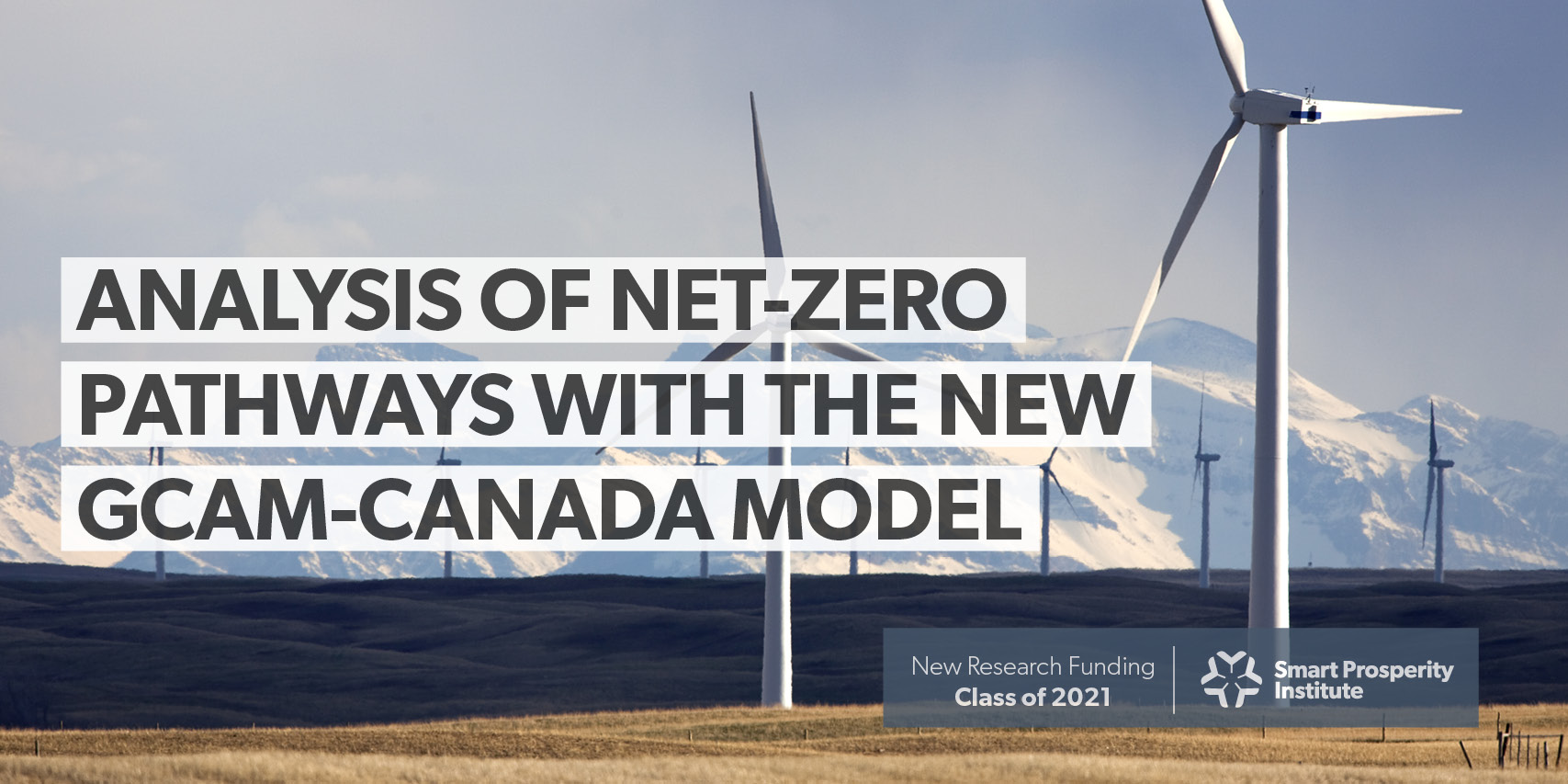
Canada’s new climate action report outlines details for the electrification of transportation and transport corridors, massive expansion of a clean electricity system, $964 million over four years to “advance smart renewable energy and grid modernization projects to enable the clean grid of the future”, and commitment to the economy, equity, inclusion, communities, and the workforce. One important pathway to these goals is implementing clusters of renewable and low-carbon innovations, also called renewable energies industrial clusters, that can dramatically speed up the transition towards renewable energies.
The objective of this project is to connect the fields of sustainability transitions, energy geography, and regional sciences, in order to answer real world policy questions of “how do renewable energies industrial clusters emerge, in what form, and how do they impact the renewable energy transition in different types of locations?” The analytical framework will identify important concepts and influences, will identify the range of factors that affect the emergence and form of renewable energies industrial clusters spatially that inform policy decisions, advance each field, and inform future analyses about renewable energy transitions. This analysis will provide practical insights into a resilient recovery and the equitable and inclusive aspects of a transition to a clean, low-carbon economy; and help inform the selection, prioritization and financing of clean innovation strategies across sectors, sector specific pathways, and distributional impacts of existing or proposed low-carbon and/or resilient recovery policies and programs.
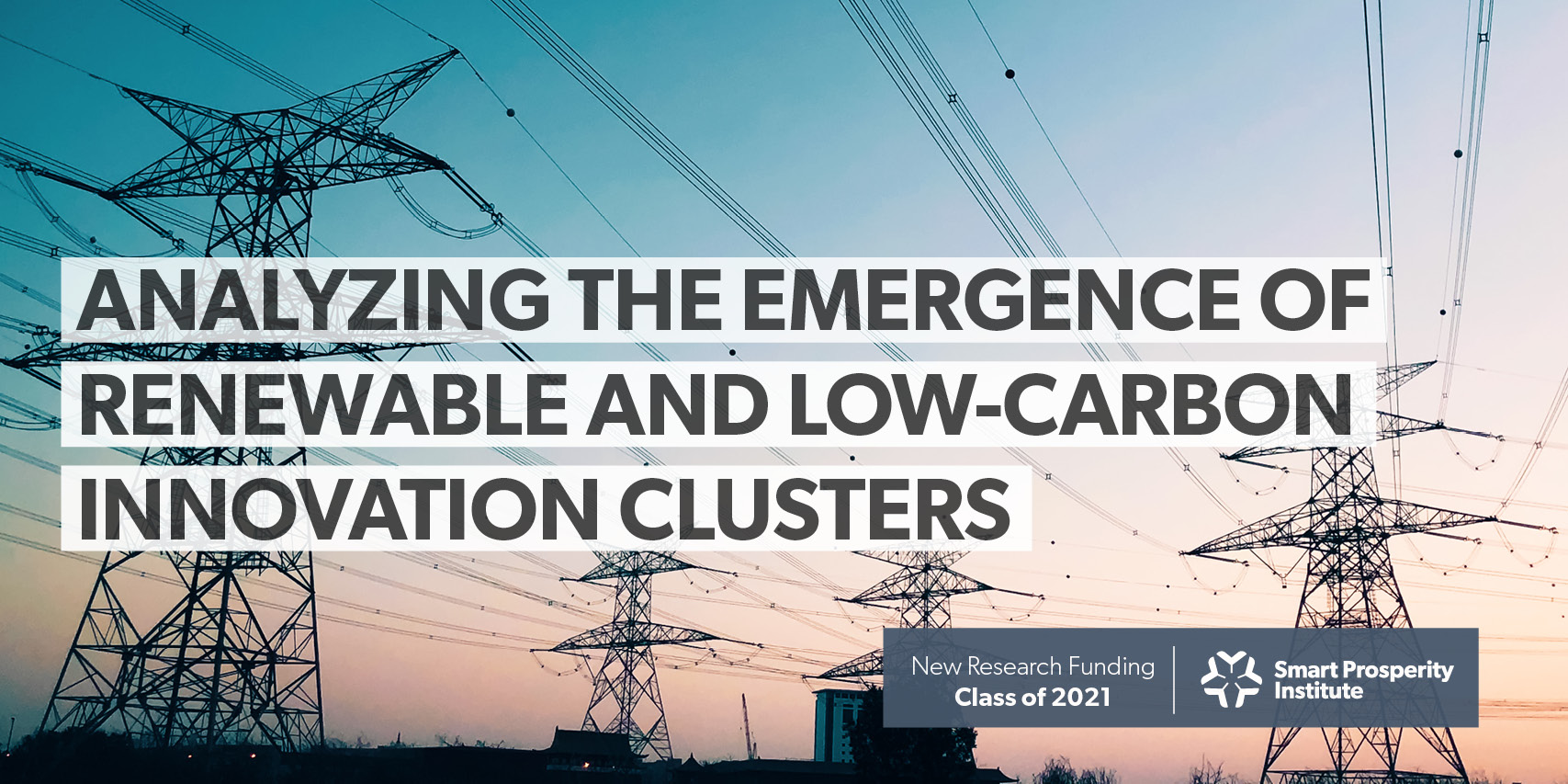
This funding will support the initial phase of a comparative research project examining the design and implementation of provincial renewable procurement programs in New Brunswick and Nova Scotia from 2006-2020. This research investigates two main research questions: 1) How did elements of climate policy design (i.e. community compensation tools, public engagement processes, and risk communication strategies) impact public acceptance of renewable technologies (e.g. wind, solar, tidal) in each province? 2) How did perceived failures/successes of policy implementation internally and in other provincial jurisdictions impact subsequent rounds of policy making in each province?
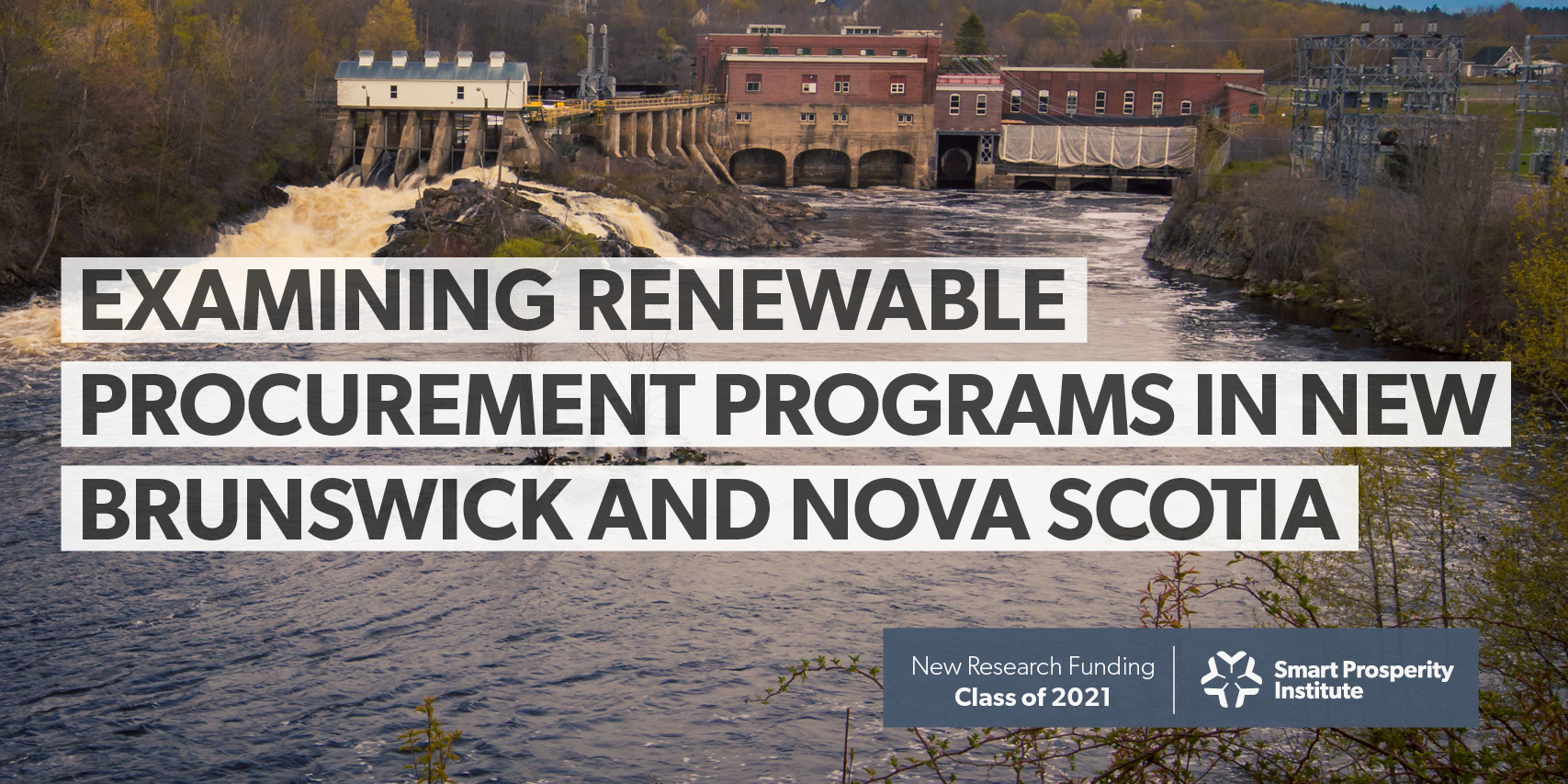
The purpose of this research is to work with communities to pilot, refine, and disseminate a climate change vulnerability assessment tool that integrates social and cultural considerations with biophysical dimensions of adaptive capacity and prioritizes contextually appropriate measures to mitigate and adapt to climate change. The research will be conducted in close collaboration with an Indigenous forest-based community in northern Saskatchewan facing wildfire and an Indigenous agricultural community in southern Saskatchewan facing flooding. The objectives of this research are to 1) characterize past and present adaptive capacity in the study communities to inform future climate change adaptation priorities; 2) identify the most salient social and cultural dimensions that inform experiences of climate change in each study community; 3) pilot a draft form of a tool for assessing climate vulnerability in the study communities; 4) assess the extent to which the tool is able to account for social considerations, including gender and Indigeneity, on experiences of climate vulnerability; and 5) use the results of the analysis to refine the tool and share with policy-makers at various levels to inform the development of effective climate change policy.
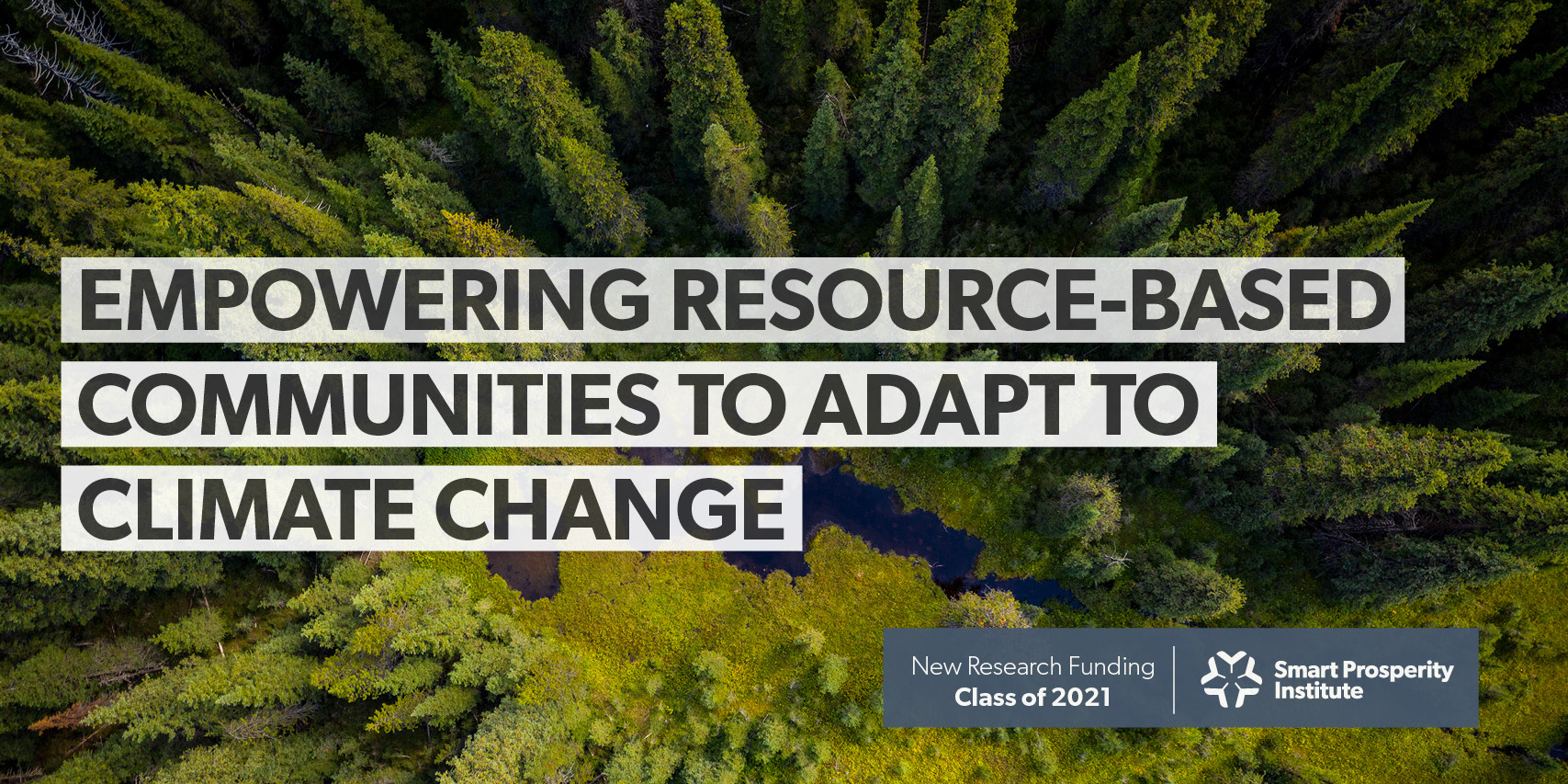
Increasingly stringent environmental policy, such as the federal carbon pricing backstop, has the potential to reduce households’ ability to afford energy services. While Canada has an official poverty line, there is no official measure of energy poverty, which is a correlate of income related poverty. “Energy poverty” describes households’ inability to afford energy services or maintain adequate living conditions. While there are some estimates of the impact of carbon pricing at an economy-wide level, as well as some province level analysis, we have limited understanding of how environmental policy interacts with poverty, and households at risk of poverty, in Canada.
Using seven different indicators to characterize energy poverty in Canada, and relying on data from Statistics Canada’s Social Policy Simulation Database and Model, we will explore households’ ability to afford energy services, or their risk of energy poverty. Our research questions are: 1. What is the current status of energy poverty in Canada, by province? 2. What household characteristics are correlated with those most susceptible to energy poverty? 3. What is the expected effect of environmental taxes on energy poverty? 4. What is the expected mitigating effect of carbon tax rebates, like the Canada Climate Action Incentive, on energy poverty?
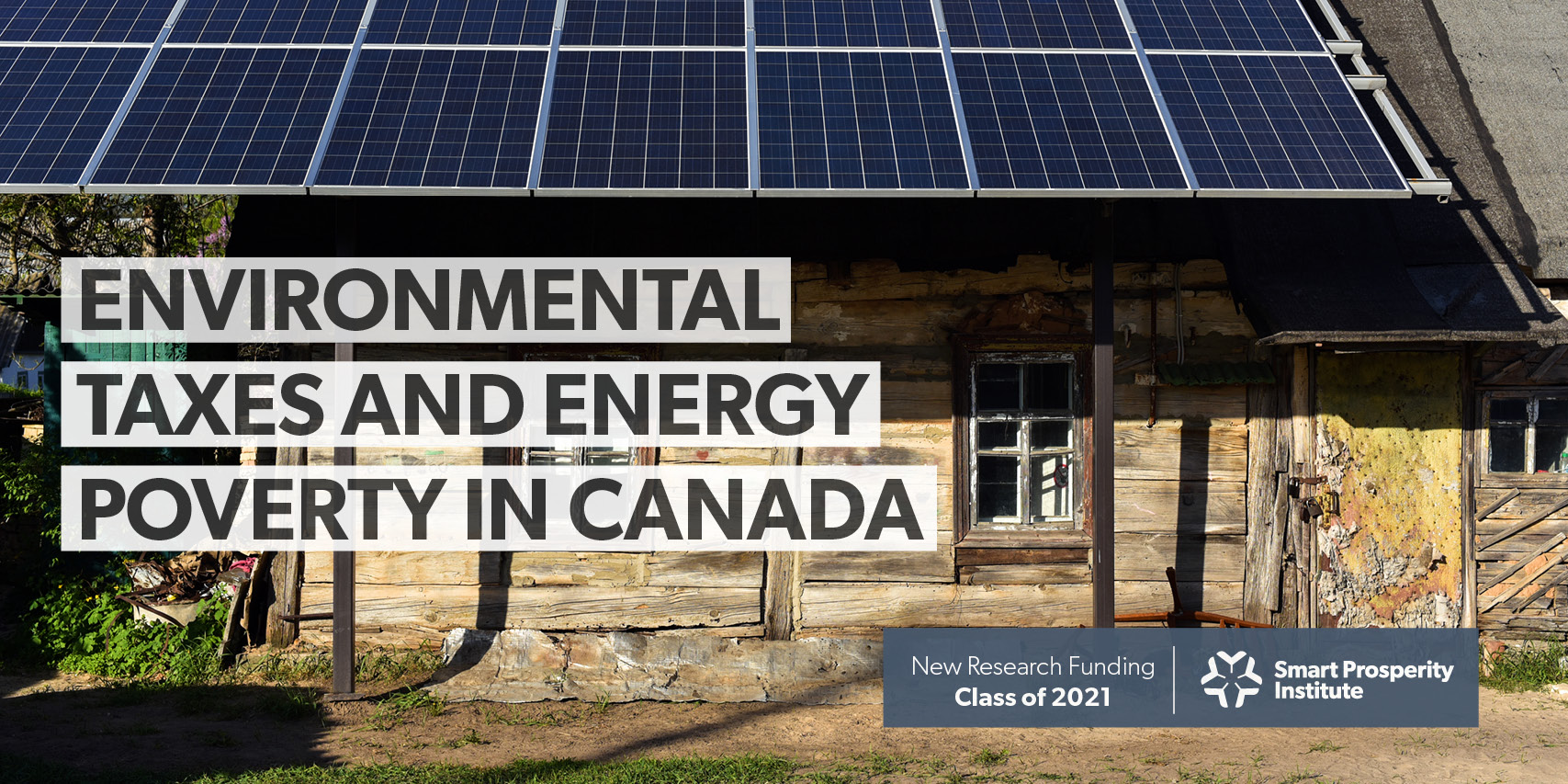
Thank you to all those who submitted proposals, and congratulations to all the selected projects!
Want to have your research funded? Check out Smart Prosperity Institute’s latest funding opportunity: Call for proposals for research that examines protecting Canada’s natural capital and accelerating the transition to a resource-efficient circular economy. Deadline to apply is June 7, 2021.